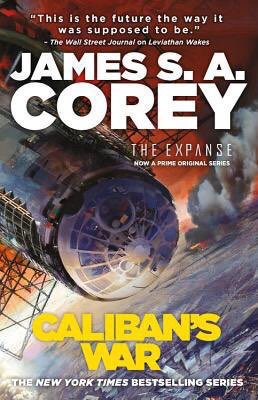Books
- We’ve got to get creative
- We’ve got to go beyond our artificial borders
- We’ve got to listen to those who are impacted the worst
Finished Reading 📚 Caliban’s War ⭐️⭐️⭐️⭐️

Started 📚 Children of Blood and Bone and it is off to a great start.
📚 Review: Imaginary Borders
Imaginary Borders by Xiuhtezcatl Martinez
⭐️⭐️⭐️, Recommended

Some Background
The author is a talented hip-hop artist and serves as Youth Director for Earth Guardians. The book is part of Penguin’s Pocket Change Collective.
The Idea
Climate change is a challenge that effects not just the environment we live in, but is tied to our most important political and economic issues. It’s going to be a lot cheaper to solve it now than try to address the damage, dangers, and losses as they continue to come. Taking action now means we can be more proactive, sustainable, and just in our approach. To do so:
We can do it.
The Quotes
“…the climate crisis is more like a fucked-up web that connects and impacts every single thing we care about. It amplifies all the existing problems we experience today, from racial injustice to economic inequality to health issues to food access to war. It affects our economies, our politics, and our cultures.”
“Wallace-Wells then went on to say that climate damages would create about $600 trillion in expenses by the end of the century. To put that in perspective, that’s twice as much as all the wealth in the world today. I caught myself laughing, thinking about all the people who say acting on climate is too expensive.”
“…the most critical piece of this conversation: the deep need to create a cultural shift that includes people in every facet of society.”
“Systematic injustices of economic disparity and discriminatory city planning push communities of color to the greatest danger zones for flooding and superstorms.”
“The irony is that the nations discriminating against immigrants are the ones responsible for releasing the most carbon dioxide into the atmosphere, which is creating the conditions that are causing more people to seek refuge.”
“It’s only fair that wealthier countries pay for cleaning up the climate mess that they’re mostly responsible for…”
“…more than eight million people die from air pollution every year…”
“White people on average experience 17 percent less air pollution than they produce, while black and brown communities receive 61 percent more air pollution than their consumption habits create.”
“All these imaginary borders exist in order to disempower us, and they keep our movements fragmented and divided. And it’s going to take us dropping these artificial barriers of partisan politics to really get down to solutions.”
“…one of the most damaging colonial legacies from a climate perspective is the illusion that we are separate from our environment.”
“Everything changes when the places we love are threatened.”
“…our society is heavily based on an economic model that is built on the exploitation of human and natural resources.”
“Climate solutions need to take economic justice into account because if we perpetuate the same old top-down systems, we won’t be able to solve our crisis holistically.”
“Currently, the US government is spending $649 billion annually to subsidize fossil fuels….Redirecting the money the government is pouring into propping up the fossil fuel industry would more than finance the entire Just Transition of our energy economy.”
“The story we’ve been telling about climate change has failed to truly evoke and inspire connection because it has lacked imagination and creativity.”
“I believe the climate crisis can inspire the best in humanity. It is challenging us to be our most creative, resilient, visionary selves.”
Finished Reading 📚: Delayed Gratification Issue 37 ⭐️⭐️⭐️
Finished Reading 📚 (yesterday) Gideon the Ninth
Interesting due to new perspectives and being many types of books all at once. But yes, it’s big horror at its core.
📚Now reading (listening): The Water Dancer
📚 Re-reading: Grave Peril
📚 Now reading: Delayed Gratification issue 37
I started Cal Newport’s 📚 Deep Work and it has me pondering something.
As expected (since I really enjoyed Digital Minimalism), though I have just started, I am appreciating the book. However, his early focus on productivity is concerning to me. Often, we think of productivity as the One True Measurement (TM) of success, and I’m not sure that’s right.
While effectiveness (towards whatever goal(s) you set) is important, it leaves out factors such as quality, value, repeatability, learning, etc. You could argue that we should build those into the measurements of productivity, but I’d argue we often don’t.
Perhaps my disagreement is due to me being philosophically less of a consequentialist and more of a deontologist or virtue ethicist. In my way of thinking, it’s better to do right with less immediate output than to crank out good output that may be short-sighted.
What about you?
edited to add: Cal addresses this a somewhat when he gets into “busyness” being a (bad) proxy for “productivity”.
📚 Spent part of date night putting yet another book case together, together. #OnBrand
Finished 📚 Leaders Eat Last by Simon Sinek ⭐️⭐️⭐️ Remove layers of abstraction and build relationships with people as directly as possible. Serve others.
📚 Finished The Calculating Stars by Mary Robinette Kowal ⭐️⭐️⭐️⭐️ What if we took similar events to Neal Stephenson’s Seveneves but started the story earlier in history, and gave more attention to humanity? This is that book, and it’s really good.
📚 Finished Four Futures by Peter Frase. ⭐️⭐️⭐️⭐️ How might humans respond to work automation and ecological crisis? Frase presents four possible futures, not to predict but to warn and educate. Ch. 2 is important as it discusses the major problems with idea “ownership”. #AbolishIP
📚 Review: The Benedict Option
Note: This book came up in conversation recently, and I took a moment to move my review onto my current blog, with some minor changes. This review is from August 2017.
The Benedict Option by Rod Dreher ⭐️
This was an incredibly disappointing book. If you are looking for a better account of modern “Options”, read something from one of the “new monastics” or spend some time learning from an intentional Christian community (such as Catholic Worker houses, Reba Place Fellowship, Rutba House, the Simple Way community, the Bruderhof, or Hutterite communities).
Dreher’s focus in this book is much less about saving faithful Christianity, and much more about saving Conservatism. He laments the fall of corrupt Christendom but doesn’t appear to embrace the subversive and loving alternative of the Kingdom of God. He struggles more for power & control than mercy & justice.
He seems obsessed with issues of sexuality, spending a great deal of the book talking about his personal perspectives on it, but doing little to engage actual scholarship on the topics. It far outweighs the time he spends on other topics, and he gives little attention to the life and teachings of Jesus.
To underscore the point about his conservative priorities: Dreher spends time revering Mormonism and Orthodox Rabbinical Judaism over Christian traditions that aren’t Orthodox/Catholic.
My specific alternative recommendation to reading this book: get a copy of Common Prayer: A Liturgy for Ordinary Radicals, and start using it with your family, friends, small group, house church, and/or faith community.
Further recommended reading: this review from an actual Benedictine Monk.
Recently finished 📚 Immunity to Change by Robert Kegan & Lisa Laskow Lahey. ⭐️⭐️⭐️ Recommended for complex vertical/psychological development. Good companion to The Map by Keith M. Eigel & Karl W. Kuhnert. Immunity is more promotional but also has more how-to guidance.
I liked Malcolm Gladwell’s 📚 Talking to Strangers, but I liked this podcast of him talking about the topic even better. He was more cutting, witty, etc. Great dynamic between Ezra and Malcolm on the show.
📚 Finished A Memory of Light by Robert Jordan and Brandon Sanderson. ⭐️⭐️⭐️⭐️ Mostly an incredible conclusion to the story. Suffered from inconsistent portrayal of Egwene and Gawyn that went contrary to their character arcs. Rand parts also a little hokey with Mormon stuff.
📚 Finished Towers of Midnight by Robert Jordan & Brandon Sanderson. ⭐️⭐️⭐️⭐️ With this book, it’s really coming together. I really enjoyed the Perrin, Egwene, Gawyn, Galad, etc. story-crossover scene. Also, Perrin is still the best.
I’m a day late, but here’s this year’s results for Public Domain Day! 📚 #AbolishIP